
Major hotel chains have been wooing travelers for years with CRM tools focused mainly on “loyalty” or rewards programs. The CRM programs help hotels and resorts determine which customers patronize the same hospitality brand on a regular basis. Those frequent customers accumulate points that can be exchanged for a reward — most often discounts on extended stays or future bookings.
However, there is a growing awareness that such programs may not be as valuable to either to the hotel, or to the customer, as once thought.
The fault, it appears, is not that CRM reward programs have failed, but that such programs have not been fully developed. The solution involves enhancing the use of CRM tools, especially the capability to capture and manage the immense amount of available data to learn much more about customer behavior — and then fashion marketing programs appropriately.
Catering to Valuable Guests
Not all frequent guests are alike, and some are much more valuable than others in terms of profitability.
“CRM is very important in the hospitality industry, though how robustly it is used does vary,” Diane Clarkson, a travel analyst at Forrester Research, told CRM Buyer. “CRM is typically associated with loyalty, which is limited, because purchase frequency and profitability can be two very different business outcomes.”
It’s not enough to determine who the frequent customers are, but also who the most valuable customers are, in terms of actual spending, according to Mike McCall, a research fellow at Cornell University School of Hotel Administration.
“Providing a discount to a customer who is a frequent guest but who regularly books a modestly priced room in smaller cities, which generates little per-room profit, could be a waste of marketing time and expense,” McCall told CRM Buyer.
There was “a lack of empirical evidence demonstrating positive effects” of loyalty programs and “a lack of strategic focus and measurable outcomes” associated with such programs, McCall said, citing recent research.
For 75 percent of loyalty program members, enrollment in a rewards programs failed to result in increased spending, he noted.
The key is to identify frequent customers who book premium high-profit accommodations and who patronize other profit generating resources such as hotel restaurants, room services, and gift shops.
The CRM lesson is clear. Hospitality providers need to enhance their CRM programs to take advantage of the technology tools that can help them differentiate among customers and aim their programs at those who are more valuable — and more profitable.
McCall and colleague David Ogden, a consulting analyst for SAS Institute, have developed a marketing approach that utilizes information technology to focus on garnering increased business from high spenders in the short run. They advocate implementing a customer lifetime value (CLV) strategy designed to improve customer retention over the long term, including mechanisms that can model and predict future business.
The CRM technology that can reveal frequent customers who provide the maximum potential — as well as the tools to help set objectives and measures results — is available, but its use, said McCall, is “just in its infancy.”
Better Customer Data Yields Benefits
A well-grounded CRM program should be built on generating high-quality consumer information for designing promotion activities.
“If the hotels or resorts don’t have a good data strategy, they won’t have a good marketing strategy,” Steven Ashe, a customer intelligence specialist at SAS Institute, told CRM Buyer. “There is a gold mine of data out there. They just need to use the available tools to manage it,” he said.
Once the data is developed, hospitality managers can then translate information on customer background and requirements to improve “customer experience” with better discounts or in-hotel benefits such as a free mini-bar or free dry cleaning. They can also consider expanding rewards beyond hotel-related items to general merchandise programs.
Even an enhanced reward program may need to be supplemented with other CRM tools, however. In a tough economy, loyalty programs have somewhat lost their luster.
Only 36 percent of business travelers said they were brand loyal in 2009, versus 42 percent two years ago, reported Henry Harteveldt, vice president and principal travel analyst with Forrester Research.
“Because of the economy, 2010 will be just as challenging for hotels, with companies keeping a close watch on travel budgets,” he told CRM Buyer.
Ninety-three percent of respondents to a 2009 market survey conducted byHotels.com wanted improvements in their loyalty programs, such as fewer restrictions on benefits.
More than one third of respondents “don’t think the value added bonus is ever really as great as the program wants them to believe,” says the Hotels.com report. Nearly half of respondents didn’t book anything in the past year using the travel reward benefits.
For CRM vendors, that could be good news, as hotels and resorts enhance their use of CRM tools to improve loyalty programs and to counter the effects of the recession.
New Directions Online
In 2010, the industry may focus on price reductions to attract business, Forrester’s Harteveldt found, based on a limited survey of 27 top hotel professionals. However, CRM tools including Web sites, better links with online travel agents, or OTAs, and social media will still attract a significant amount of attention.
“Despite the frustrations they may have with either volume or revenue production, it appears that few hotel e-business and distribution professionals intend to drop any of the channels they are currently using,” Harteveldt says in the report. Twenty of 22 respondents intend to increase their use of their brand Web sites more in 2010 than in 2009, and 17 of 21 respondents said they plan to use property-level Web sites more.
“This makes sense,” he continues. “Direct Web sites are highly cost-efficient and allow hotels to establish and build relationships directly with their guests. Hotels have a fiduciary responsibility to ensure that their Web sites are tangibly better and more effective than any third-party Web site, making it vital that hotel CFOs and CIOs commit to the necessary funding and technology support that will enable hotel Web sites to become more productive.”
Hotels and OTAs “have not always seen eye to eye in the past,” Forrester reported, but hospitality providers have begun to increasingly value the online marketing channel. Of the 25 respondents whose firms use OTAs, 16 intend to use this channel more in 2010 compared with 2009. The increased use of the OTA link will come at the expense of less effective channels, such as “bed banks,” traditional agencies, wholesalers and tour operators.
“Despite social media’s poor satisfaction score for revenue performance, hotel e-business and distribution professionals know they need to be where the eyeballs are,” Harteveldt said.
Seventeen of 22 hotel respondents plan to increase their social media participation in 2010 while four of the respondents intend to maintain their participation in this channel at 2009 levels, Forrester reported.
In the hospitality sector, the current and emerging tools of CRM should play a greater role in the future. Hospitality providers will increasingly employ CRM tools to improve conventional rewards programs to make them more effective in attracting guests, and more productive in terms of profitability.
Equally important to realizing the full potential of CRM programs in the sector is the need to substantially improve the use of customer data and analytics and to exploit communications technologies through the Web and social media.

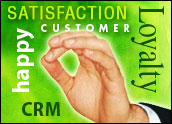


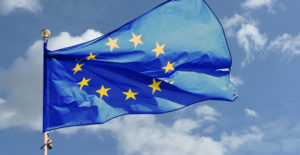


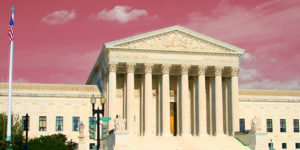
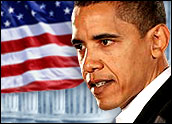


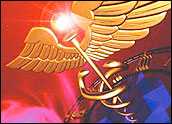











































Social CRM
See all Social CRM